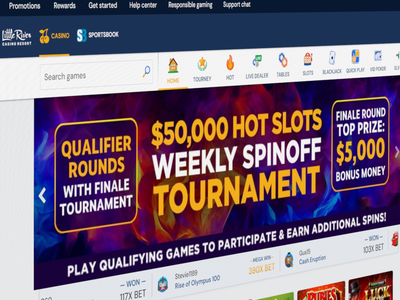News broke last week that Michigan is about to become the fourth state to join the Multi-State Internet Gaming Agreement (MSIGA).
For those not familiar with the snappy acronym, the MSIGA is an interstate gaming compact that allows for combined US online poker player pools among its member states, namely New Jersey, Nevada, and Delaware. Simply put, it allows online poker players in those states to play against players physically located in other MSIGA states.
Michigan is the latest state to show its intent in joining the multi-state online poker agreement and hopes are high in the industry are that the state will soon share liquidity with NJ, NV, and DE.
If Michigan does fully execute the MSIGA, the addition of Michigan’s population of 10 million will result in nearly doubling the size of the combined market from 13 million to about 23 million — giving a huge boost to the number of potential poker players.
States of the MSIGA
| US States | Online Poker Launched | Joined MSIGA | Population |
|---|---|---|---|
| Delaware | Nov 2013 | March 2015 | 1.0 million |
| Nevada | Apr 2013 | March 2015 | 3.1 million |
| New Jersey | Nov 2013 | Oct 2017 | 8.9 million |
| Michigan | Jan 2021 | April 2022 (pending) | 10.0 million |
| Total | - | - | 22.9 million |
However, Michigan joining the compact is not a done deal — Michigan still needs to ratify the agreement and each operator that wishes to combine its player pool across state lines needs to be approved for multi-state poker by the Michigan Gaming Control Board (MGCB).
Past expansions have shown that combining platforms into one multi-jurisdictional network leads to an increased boost in player activity, bigger prize pools, and more concurrent games. Once Michigan joins and opens the gates for operators like WSOP MI, BetMGM Poker MI, and PokerStars MI to combine liquidity, a big boom in the Michigan online poker market is sure to follow.
With the market size of MSIGA set to double and the number of virtual hands being dealt to increase along with it, responsible gambling infrastructure will be paramount for online operators creating safe environments in which to play. This goes beyond protecting players from harmful gambling behaviors, but also ensures the games are fair, without collusion as well as keeping player funds secure.
Before Michigan could sign the agreement, the MGCB requested a handful of changes and additions, in line with its own state laws and regulations. Last week, MI Gaming Review exclusively revealed what these changes entailed and, by and large, they revolved around responsible gaming. Thanks to this official document being shared with MIGR, we can now take a closer look at the responsible gambling requirements that each state and operator must offer in order to participate in MSIGA.
It is worth noting that, in order for an operator to be live and operational within one of the states mentioned, they will already be adhering to the responsible gaming rules and regulations as outlined by the regulator of the state in which they operate. The MSIGA requirements largely reinforce what is already in place, however, these RG measures were not explicitly included in the two previous versions of the agreement.
As outlined in the MSIGA document, each operator must prevent and detect:
- Cheating
- Fraud
- Collusion
- Theft
- Embezzlement
- Use of funds derived from illegal activity
- Money laundering
- The use of automated computerized software or any other equivalent mechanism, such as a “bot,” to help gain an edge
The operator must also protect a player’s personal, financial, and wagering information — all of which create a safe and fair environment for players who want to play online poker. The MSIGA document also states that all online gambling operators must offer a “positive patron experience” which includes conducting their business in a fair, honest, and well-regulated environment.
The online operators will only offer online gambling in states where the activity is legal and must also have an age verification system to stop underage players from accessing the site, as well as a system to detect problem gambling behavior as well as others who may not be eligible to gamble.
All players must agree to the terms and conditions of the site before they are able to sign up. The operator must allow a player to be able to log out and will automatically log them out of games if they have been inactive for a certain period of time. The operator must also provide a secure way for players to deposit and withdraw funds onto their site.
All operators must offer a full suite of responsible gambling tools which a player can implement directly on the site or app, allowing the player to limit the amount of time and money spent on the gambling platform. These include but are not limited to:
- Loss Limits
- Deposit Limits
- Time Limits
- Wagering Limits
An online operator must never allow a person who has been excluded to play on a site or has been self-excluded to log on and play on the site. In most cases, an operator will have ways for a player to self-exclude via its website or app. Self-exclusion is a way for a player to, essentially, ban themselves from being able to log into a site, thus blocking their ability to gamble, lasting anywhere from 1 year to 5 years to a lifetime ban.
In addition to being able to self-exclude via the operator’s site, players are also able to do this at the state level. To do so, they can contact the gaming regulator in their state — in this case, Michigan, Nevada, New Jersey, or Delaware — and fill out the appropriate paperwork that will initiate their self-imposed ban from both online and real life casinos, poker rooms, and sportsbooks.
All online operators within the MSIGA must provide links directly on their sites to resources to help players suffering from gambling addiction or harmful gambling behavior. Such resources can include treatment, education, and 24/7 confidential hotlines that can give immediate assistance to players in need.






